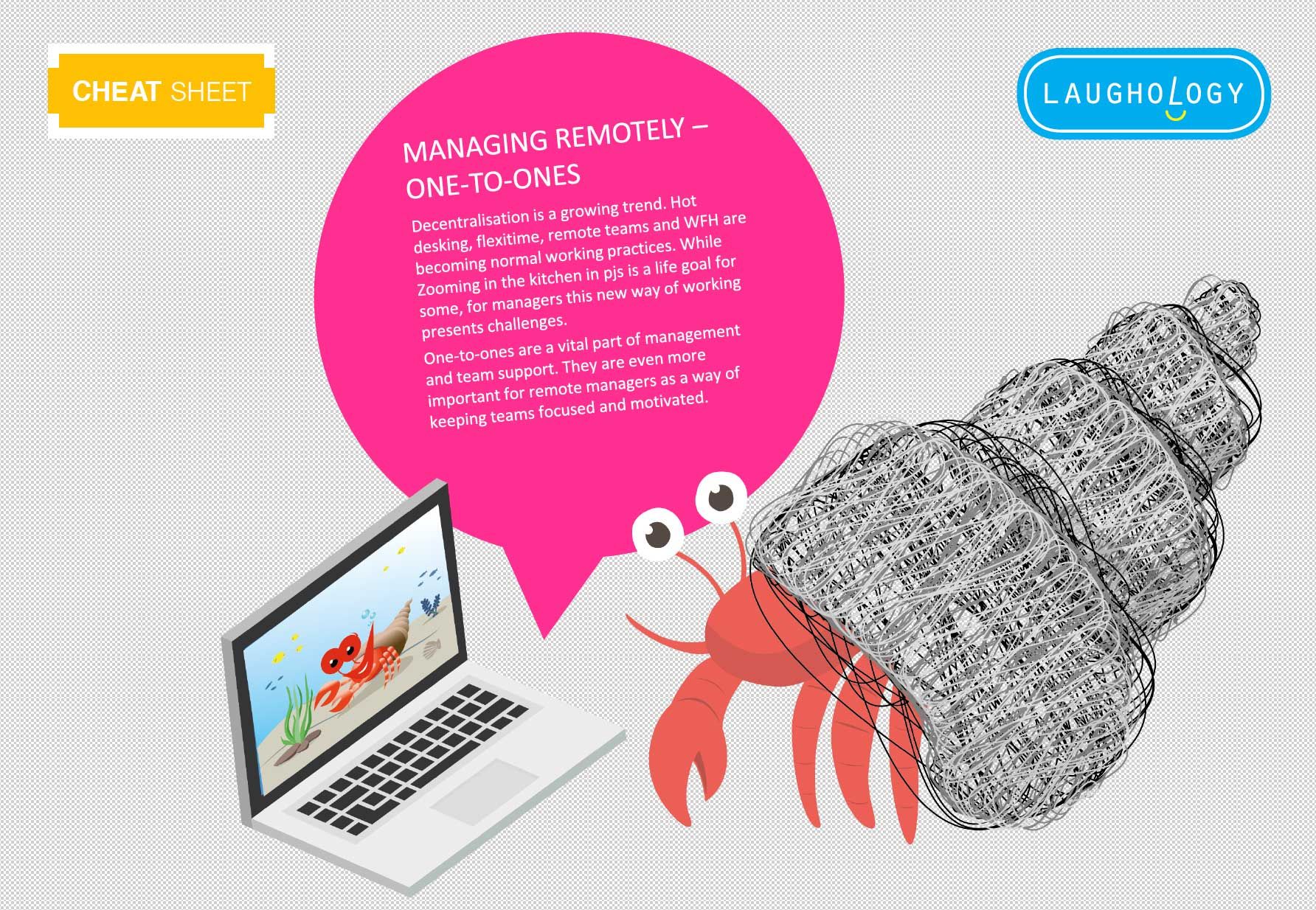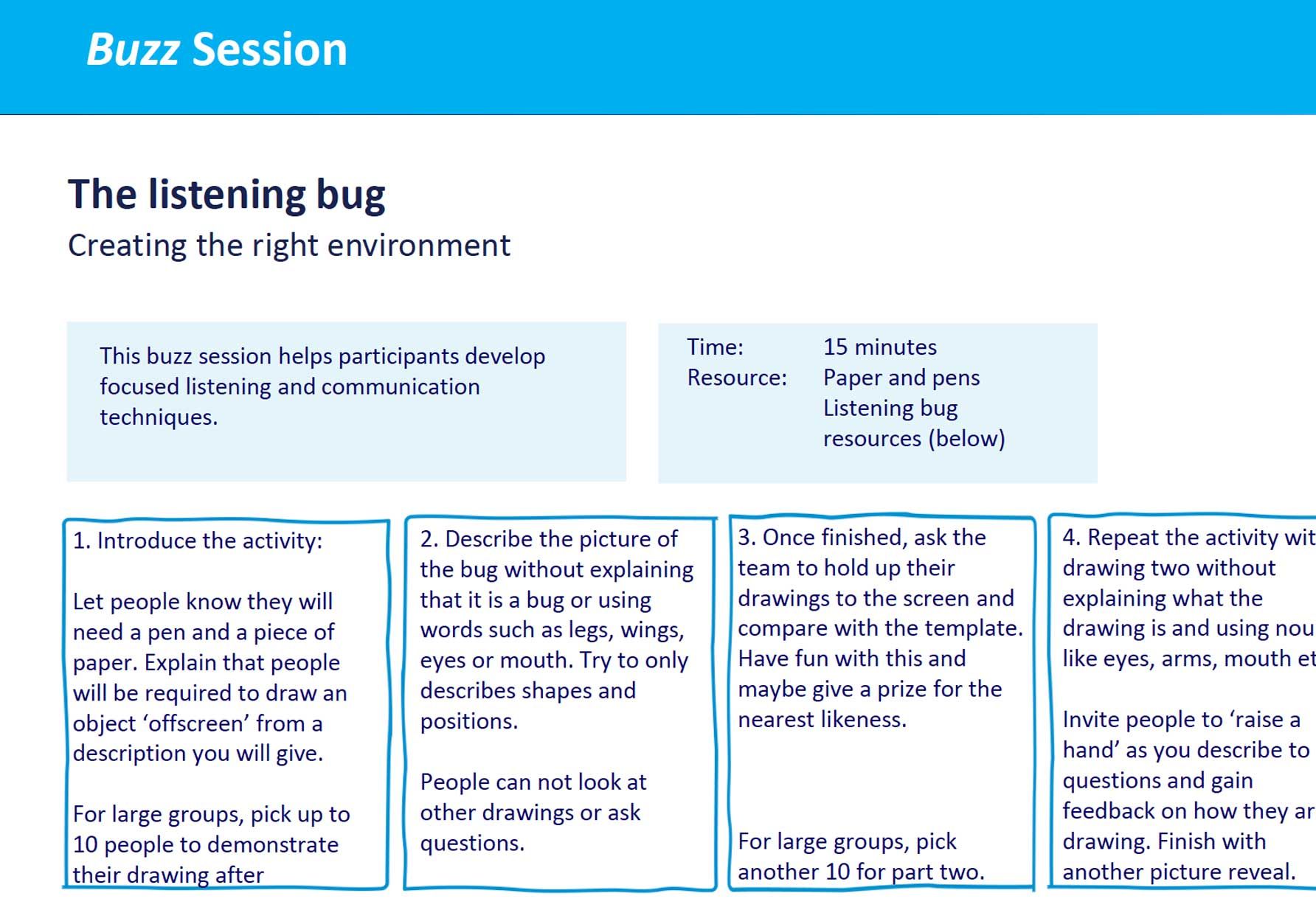WORKING FROM HOME.
LISTEN AND COLLABORATE
Connect - Collaborate - Communicate
Introducing our second series of learning bursts. This series is all about working from home and because we like an acronym we’re calling it WFH: Connect - Collaborate - Communicate (okay, the second part isn’t an acronym!).
In this series we’ll share some top tips for managers, teams and individuals to get the best out of WFH, including being productive, combating loneliness and staying connected.
For more modules and topics go to our online learning page.Watch
LISTENING AND COMMUNICATION HACK
Read
Listening: It’s Not as Easy as it Sounds
Listening is an essential skill for effective communication. Some could argue it’s the most important, based on our need to feel understood.
We’ve all been part of a conversation or a meeting where it’s evident that people are just not listening. It impacts relationships and, in a workplace, can also cost time and money.
However, there are reasons for this.
As it turns out, listening isn’t as easy as you might think. Scientific research shows that we listen to people at a rate of 125-250 words per minute, but think at a rate of 1000-3000 words per minute - clearly there’s a lot going on in our heads when we’re trying to listen to others. The good news is we can improve our listening skills through practise.
Many of us are now working from home, changing the way we communicate. Remote work and listening can seem difficult because the amount of face-to-face contact is limited. But this doesn’t mean that we can’t listen. Listening is even more important now than ever before.
So, you think you’re a good listener?
Did you know that there are many different types of listening? Let’s have a look at the 3 main types:
- Internal Listening: We listen in terms of our own experience and formulate our own opinion. We’re not really listening, we're just waiting for a chance to pounce and put our opinions forward; it makes us feel good, but it’s not much good for the person on the receiving end.
- Focussed Listening: We concentrate on the other person and listen to understand. We demonstrate that we’re listening by asking questions to further our understanding.
- Observed Listening: We demonstrate focused listening, observing both what we see and hear, as well as what we don’t see and hear. What’s not being said behind the words? We observe people’s behaviours and body language, as well as the words they say or type.
Tips to help improve our listening skills:
In order to use your listening skills effectively, have several different platforms to use, as well as a plan for how and when to use them. Be aware of the limitations of each online communication method and adapt them so that you can truly listen. If possible, engage face-to-face on your chosen platform, as seeing someone’s face can help you pick up on nonverbal cues.
If you can’t speak to the person face-to-face, focus on your online language - emails and text can be easily misconstrued. Ask questions for clarification! This way, everyone’s clear on what’s being said.
Remember to have a break too. Trying to do too much or multitasking can cause us to stop listening. Remove as many distractions as you can. If it’s an important phone call, go somewhere quiet.
Avoid interrupting someone when they’re speaking. For all you know, they could be about to explain whatever it is you’re going to comment on. Write down things you want to ask, as well as things that are distracting you. Create a column for ‘in’ (things relevant to the conversation) and a column for ‘out’ (things that randomly jump into your head).
We often see the world through the lens of our own experiences, personality and beliefs. Show some empathy and listen to understand a situation from someone else's point of view.
Listening helps us tune into what’s going on, as well as what others need and how they feel. In turn, this helps us build better relationships, make decisions, increase our knowledge and be more productive.
So, give it a go! Remember, you were given two ears and one mouth for a reason.
And, as the Dalai Lama says, “When you talk, you’re only repeating what you already know. But if you listen, you may learn something new.”
Do

DOWNLOAD: Download the Communicating with tech Cheat Sheets
Download the Communicating with tech Cheat Sheets
Download the Listening Bug Buzz Session
























